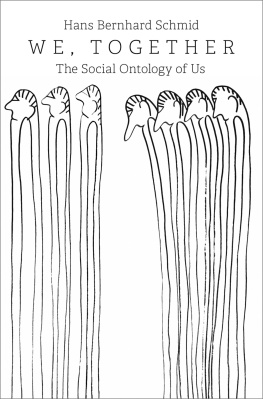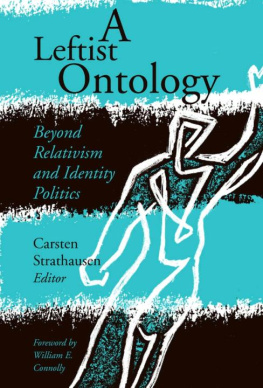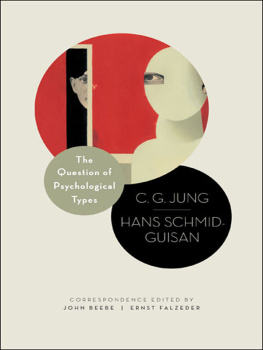Hans Bernhard Schmid - We, Together The Social Ontology of Us
Here you can read online Hans Bernhard Schmid - We, Together The Social Ontology of Us full text of the book (entire story) in english for free. Download pdf and epub, get meaning, cover and reviews about this ebook. year: 2023, publisher: Oxford University Press, genre: Religion. Description of the work, (preface) as well as reviews are available. Best literature library LitArk.com created for fans of good reading and offers a wide selection of genres:
Romance novel
Science fiction
Adventure
Detective
Science
History
Home and family
Prose
Art
Politics
Computer
Non-fiction
Religion
Business
Children
Humor
Choose a favorite category and find really read worthwhile books. Enjoy immersion in the world of imagination, feel the emotions of the characters or learn something new for yourself, make an fascinating discovery.
- Book:We, Together The Social Ontology of Us
- Author:
- Publisher:Oxford University Press
- Genre:
- Year:2023
- Rating:5 / 5
- Favourites:Add to favourites
- Your mark:
- 100
- 1
- 2
- 3
- 4
- 5
We, Together The Social Ontology of Us: summary, description and annotation
We offer to read an annotation, description, summary or preface (depends on what the author of the book "We, Together The Social Ontology of Us" wrote himself). If you haven't found the necessary information about the book — write in the comments, we will try to find it.
We, Together The Social Ontology of Us — read online for free the complete book (whole text) full work
Below is the text of the book, divided by pages. System saving the place of the last page read, allows you to conveniently read the book "We, Together The Social Ontology of Us" online for free, without having to search again every time where you left off. Put a bookmark, and you can go to the page where you finished reading at any time.
Font size:
Interval:
Bookmark:


Oxford University Press is a department of the University of Oxford. It furthers the Universitys objective of excellence in research, scholarship, and education by publishing worldwide. Oxford is a registered trade mark of Oxford University Press in the UK and certain other countries.
Published in the United States of America by Oxford University Press
198 Madison Avenue, New York, NY 10016, United States of America.
Oxford University Press 2023
All rights reserved. No part of this publication may be reproduced, stored in a retrieval system, or transmitted, in any form or by any means, without the prior permission in writing of Oxford University Press, or as expressly permitted by law, by license, or under terms agreed with the appropriate reproduction rights organization. Inquiries concerning reproduction outside the scope of the above should be sent to the Rights Department, Oxford University Press, at the address above.
You must not circulate this work in any other form and you must impose this same condition on any acquirer.
Library of Congress Cataloging-in-Publication Data
Names: Schmid, Hans Bernhard, author.
Title: We, together : the social ontology of us / Hans Bernhard Schmid.
Description: New York, NY : Oxford University Press, [2023] |
Includes bibliographical references and index.
Identifiers: LCCN 2022044673 (print) | LCCN 2022044674 (ebook) |
ISBN 9780197563724 (hardcover) | ISBN 9780197563748 (epub)
Subjects: LCSH: Social institutions. | Social systems. | Ontology.
Classification: LCC HM826 .S365 2023 (print) | LCC HM826 (ebook) |
DDC 306dc23/eng/20221227
LC record available at https://lccn.loc.gov/2022044673
LC ebook record available at https://lccn.loc.gov/2022044674
DOI: 10.1093/oso/9780197563724.001.0001
This book is about our being together. But who is we? A Tagalog translation of this book would have to be at least somewhat clearer, because Tagalog has three words for different uses of we: tayo, kami, and kita. Tayo is the inclusive plural we, meaning you, I, and others, as distinguished from the exclusive plural kami (me and others, but not you), and the inclusive dual kita (just you and I). In Tagalog, the title word would be tayo. So you and I are included (kita, just you and I, will be the topic of )but about who else will it be?
Saying we seems like drawing a circle, and the first question you might expect me to answer is how exactly it is drawn and why. Since this is a book in philosophy, you probably expect we to be rather inclusively conceived: we, in general, a wide category, a big class, a large kind, perhaps a whole species. What category, what class, what species, what kind is we in general? Is this going to be about humankind? If so, under what cultural, historical, biological, theological, or perhaps metaphysical conception thereof? And how is this book going to deal with those of us whoas history showsare excluded or marginalized by those conceptions?
There are good reasons to worry. We are not particularly good at conceiving of who we are. Conceptions of us, however cosmopolitan they aim (and claim) to be, tend to be both parochial and imperialistic. They are parochial in that they fail to recognize some of us as who they are by excluding them from the circle of we. And they are imperialistic in that they conceive of everybody on the model of just some of us, thus marginalizing the rest of us.
Our failing to know who we are has practical consequences for the ways in which we live together. For who we think we are determines how we organize ourselves. Misconceiving of ourselves in parochial, imperialistic, or other ways leads to exclusive and oppressive organizations and organizational failures. Knowing who we are matters for living well together.
So who are we really? If I knew the species, class, category, or kind that is us, I would certainly have named it in the title. But I dont. And I doubt that anyone else knows either, or even if it is the task of philosophy to engineer a conception of who we are. For determining who we are is unlike establishing what anything else is. It is not about registering relevant matters of fact or about tailoring useful concepts according to some pre-set normative standards. Rather, determining who we are is about establishing our identity and about setting our values. And this is up to ourselves to achieve. Who we are is up to us.
This thought is familiar enough in its singular or distributive form from some traditions in the histories of philosophies. Who you are is crucially up to you, and who I am is up to me. In this form, determining who we are is up to each of us, for and by ourselves, as the individuals we are. The central thought to be developed in this book is that determining who we are is not limited to singular self-determination. For we are not just who we are each of us for and by ourselves. We are who we are together with others, too, in the many ways in which we live together. Determining who we are thus involves us plurally. It is up to usalone as well as together, individually as well as collectively, severally as well as jointly. And insofar as our living together extends beyond any one of our parochial conceptions thereof, determining who we are ultimately involves all of us together.
Conceiving of ourselves as a species, a class, a category, or a kind thus misses a crucial point about us. Put in traditional terms, we are not objects: we are subjects. We are who we are in virtue of ourselves. Not that we could be whomever we like, if we so wished, or that we actually are whomever we happen to believe ourselves to be. Rather, the claim is that there is no way of accounting for who we are without holding ourselves accountable in the process. And the central point in this book is that this involves us plurally. Our being who we are in virtue of ourselves crucially involves us as plural subjects and is thus up to us, together.
The pieces of the line of argument developed in this book were originally developed in a series of academic papers. They are referenced in the relevant passages of the text and listed in the references section. The text has been thoroughly rewritten, paying attention to their connecting points.
This book owes much to the people with whom Ive been discussing related issues over the extended period of time of drafting this book. Special thanks go to my current and former colleagues at the University of Vienna, especially to Michael Schmitz, Leo Townsend, Judith Martens, and Niels de Haanthey may not agree with all that Im saying or with the way Im saying it, but without my conversations with them, I would not be saying it in quite this way either. Asya Passinsky, Michael Schmitz, Beatrice Kobow, and Franz Altner have provided feedback to sections of a draft of this book on a workshop organized for this purposethanks to them and to the other workshop participants for their suggestions. Nicolai Knudsen has read a draft and provided useful comments.
My outlook on issues concerning social ontology owes much to the current and former co-editors of the Journal of Social Ontology, David P. Schweikard, Frank Hindriks, Arto Laitinen, Heikki Ikheimo, Alessandro Salice, Gerhard Thonhauser, and Mari Mikkola, as well as, more recently, Katherine Jenkins, Kate Richie, and Glenda Satne. Thanks to Sarah Fisher, whose engagement for the newly funded Vienna Doctoral School of Philosophy has made it possible for me to continue working on this project in spite of increasing departmental duties. Michaela Bartsch has been providing administrative and organizational support for exactly a decade. Martin Niederl, Leonie Holzner, and Anna-Maria Edlinger have supported me in teaching and administration over the time of completing this manuscript.
Font size:
Interval:
Bookmark:
Similar books «We, Together The Social Ontology of Us»
Look at similar books to We, Together The Social Ontology of Us. We have selected literature similar in name and meaning in the hope of providing readers with more options to find new, interesting, not yet read works.
Discussion, reviews of the book We, Together The Social Ontology of Us and just readers' own opinions. Leave your comments, write what you think about the work, its meaning or the main characters. Specify what exactly you liked and what you didn't like, and why you think so.










